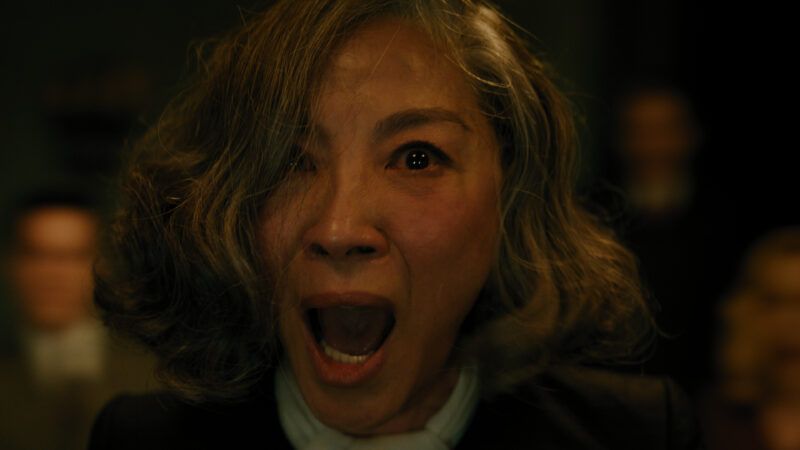Review: A Haunting in Venice
Murder most spooky.

The most mysterious thing about A Haunting in Venice, Kenneth Branagh's latest Agatha Christie adaptation, is how such a beautifully made movie could also be such a weary and unengaging disappointment. Like Branagh's two previous Christie films—Murder on the Orient Express (2017) and Death on the Nile (2022), both of which he also directed and starred in—this new one is hobbled by an excess of tasteful restraint. Taking on one of Christie's least-loved novels—the late-career Hallowe'en Party of 1969—he attempts to enliven things with a sort of genre graft, gussying up the author's familiar country-house murder mystery with supernatural flourishes. You'd hope that this would be more fun than it is, but it isn't.
Branagh once again plays Christie's punctilious Belgian detective Hercule Poirot. With the Second World War over (it's 1947), Poirot is now retired and living in Venice, where he potters around in his garden and fends off insistent admirers who implore him to crack one last case (their own, of course). He turns all of these supplicants away, but he can't dismiss his old friend Ariadne Oliver (Tina Fey), an American crime novelist whose books helped turn Poirot into an international celebrity back in the day. Ariadne (a character modeled on Christie herself) also has a puzzle for Poirot to solve—a case involving a dead woman named Alicia Drake (Rowan Robinson), who will be the focus of a Halloween séance scheduled to be held in a gloomy palazzo on the Grand Canal. There's already another investigator involved, a medium named Mrs. Reynolds (Michelle Yeoh), who Ariadne is pretty sure is a fraud. (Yeoh has fun here playing a spirit hustler who communicates with the beyond not via Ouija board or crystal ball, but by typewriter—"I think of myself as a secretary," she says modestly.)
In the usual manner of Christie tales, this one is well-stocked with ancillary characters, several of whom have (what else?) secrets. Kelly Reilly is the dead girl's mother, a famous opera singer. Kyle Allen is the deceased's fiancé, a hissable bounder who dumped her. Emma Laird and Ali Khan are a pair of suspicious siblings (or something). And Jamie Dornan (the star of Branagh's last film, Belfast) is a doctor still soul-sick from his wartime experience helping liberate the Nazis' hideous Bergen-Belsen concentration camp. There are also flocks of black-robed figures drifting through the action in eerie white masks (it's All Hallows' Eve, the night when "the dead are as close as they can be," we're told). The movie is slick with rain and bathed in moonlight (Branagh's customary cinematographer, Haris Zambarloukos, is in top form), and to guard against levity, there's a dark and stately score by the extraordinary Icelandic composer Hildur Guðnadóttir (Joker, Tár).
So what's not to like? Well, as fine as the costumes and production design and imaginative camerawork are, the film moves slowly, the story is less than gripping (a little too much talk-talk-talk), and Branagh's Poirot is at times limply unassertive, receding into the shuffle of other characters. If only there were someone who could solve these problems. Best suggestion: no more sequels.


Show Comments (7)